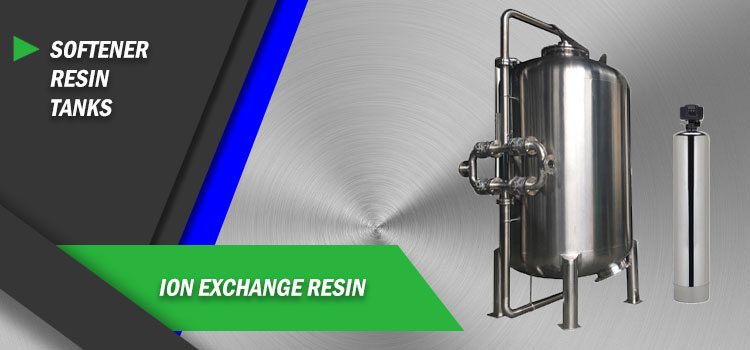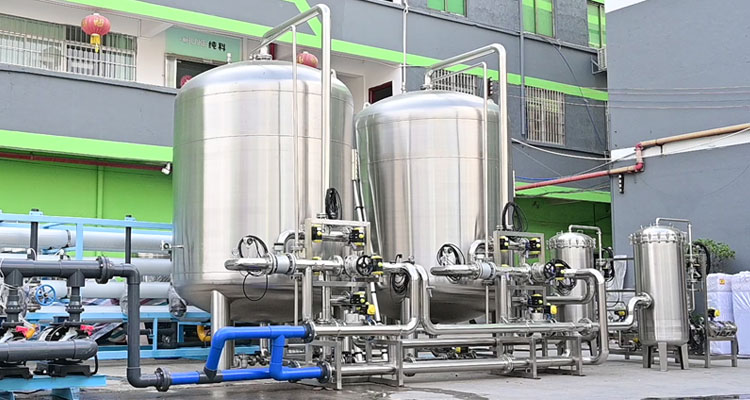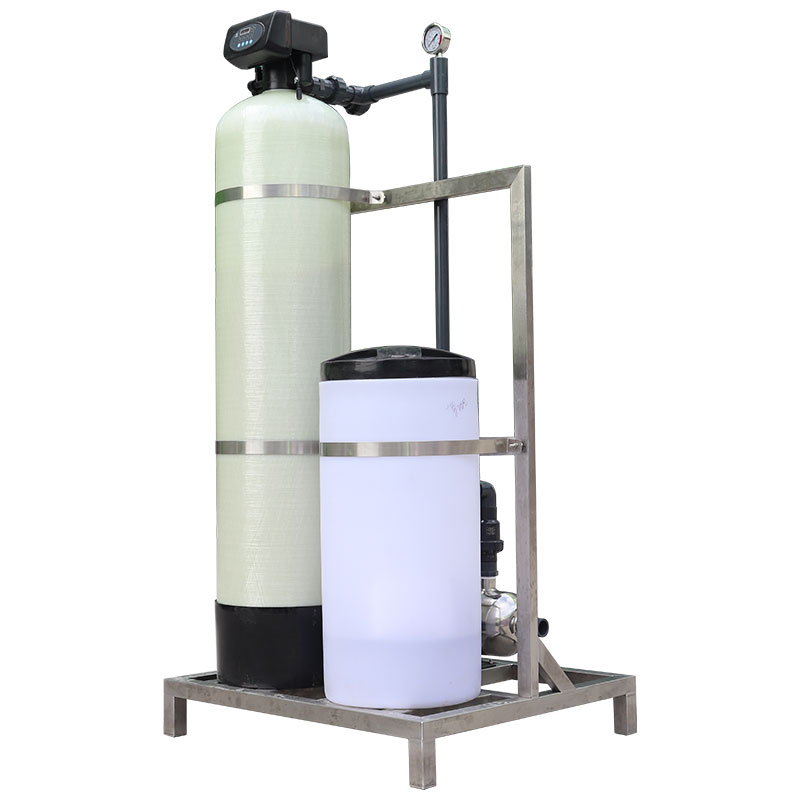Mas maganda bang maglagay ng water softener o hindi?
In daily life, water quality has always been one of the focuses of people's attention. The problem of hard water is particularly common. It not only affects the quality of life, but also may cause damage to household appliances and pipes. In order to deal with the problem of hard water, many families choose to install a water softener.
However, should a water softener be installed? Is a water softener really necessary? In what cases is a water softener necessary? This article will explore these issues in depth to help readers make an informed decision.

What is the difference between hard water and soft water?
Before discussing whether to install a water softener, we need to understand what hard water and soft water are. Hard water refers to water with high concentrations of calcium and magnesium ions. These minerals will form scale during heating, affecting water quality and the use of daily necessities. Soft water refers to water that has been treated to remove most of the calcium and magnesium ions. It is not easy to form scale and has a better user experience.
What is the working principle of a water softener?
The water softener mainly replaces the calcium and magnesium ions in the water with sodium ions through ion exchange resins, thereby achieving the purpose of softening the water quality. The specific working principle is as follows:
1. Water inlet: Hard water enters the water softener and enters the ion exchange resin tank through the control valve.
2. Ion exchange: Calcium and magnesium ions in the water are exchanged with sodium ions on the resin, and the hard water is softened.
3. Water outlet: Softened water flows out through the resin tank for household use.
4. Regeneration: As the use time increases, the sodium ions on the resin are gradually exhausted, and it is necessary to regenerate it through a regeneration agent (usually salt water) to restore the softening ability of the resin.
What are the advantages of installing a water softener?
The advantages of installing a water softener: protect pipes and household appliances, improve the quality of life, save energy, and improve the taste of drinking water.
1. Protect pipes and household appliances: Calcium and magnesium ions in hard water will form scale in pipes, water heaters, washing machines and other household appliances, affecting the efficiency and service life of the equipment. A water softener can effectively prevent the formation of scale, extend the life of the equipment, and reduce maintenance costs.
2. Improve the quality of life: Using soft water can improve the bathing experience and reduce the problems of dry skin and frizzy hair. In addition, soft water can improve cleaning results, reduce the use of soap and detergent, and make clothes softer and cleaner.
3. Save energy: Scale will affect the heat transfer efficiency of the water heater and increase energy consumption. Water softeners can prevent scale formation, improve the efficiency of water heaters, and save energy.
4. Improve the taste of drinking water: Although water softeners are mainly used for domestic water, some people think that soft water tastes better and is suitable for drinking.

What are the disadvantages of installing a water softener?
Disadvantages of installing a water softener: high initial investment, high maintenance costs, changes in water quality (water softeners increase the sodium content in water), and environmental issues.
1. High initial investment: The purchase cost of a water softener is high, and the installation and maintenance costs also need to be considered.
2. High maintenance costs: Water softeners require regular addition of regeneration agents (salt) and maintenance, which increases the cost and workload of use.
3. Changes in water quality: Water softeners increase the sodium content in water, and excessive sodium intake may be harmful to health, especially for patients with hypertension and those who need a low-sodium diet.
4. Environmental issues: The regeneration process of the water softener will produce salty wastewater, which may cause salt pollution in the soil and water bodies when discharged into the environment.
In what cases do you need to install a water softener?
When deciding whether to install a water softener, you should evaluate it based on the specific situation. It is recommended to install a water softener in the following cases: high water hardness, frequent damage to household appliances, skin and hair problems, difficulty in home cleaning, and economic ability.
1. High water hardness: If the water hardness of the home is high and scale problems frequently occur, installing a water softener can effectively improve the water quality and protect household appliances and pipes.
2. Frequent damage to household appliances: If the water heater, washing machine, dishwasher and other appliances in the home frequently malfunction or break down due to scale problems, installing a water softener can extend the life of the equipment and reduce maintenance costs.
3. Skin and hair problems: Hard water can easily lead to dry skin and frizzy hair. If family members have such problems, using soft water can significantly improve these conditions.
4. Difficulty in household cleaning: Hard water increases the use of soap and detergent and is difficult to rinse. Using soft water can improve cleaning efficiency and reduce detergent residue.
5. Economic ability: The initial investment and maintenance cost of a water softener is high. If the family is in good financial condition, installing a water softener can bring many conveniences and benefits.
How to choose and install a water softener?
If you decide to install a water softener, it is crucial to choose the right equipment and professional installation services. The following points need to be considered:
1. Equipment type: Choose a suitable water softener according to the household water consumption and water quality. There are many types of water softeners on the market, such as ion exchange, reverse osmosis and magnetic water softeners, each with its own advantages and disadvantages.
2. Brand and quality: Choose a well-known brand and high-quality water softener to ensure stable performance and long service life of the equipment.
3. Installation location: The water softener should be installed on the main water supply pipeline to ensure that all water points can enjoy soft water. At the same time, the installation location should be convenient for maintenance and the addition of regeneration agents.
4. Professional installation: The installation of a water softener requires certain technical requirements. It is recommended to choose a professional installation service to ensure the normal operation of the equipment.

User feedback and actual effect
In practice, many users have given positive comments on the use effect of the water softener. A user said that since the installation of the water softener, the water heater and washing machine in the home have never had scale problems, and the skin and hair feel more comfortable when taking a bath. Another user said that after using soft water, the cleaning work at home has become much easier, and the effect of washing clothes and dishes has also improved significantly.
However, some users have raised some questions. For example, some people believe that water softeners increase the salt consumption of the family and increase the sodium content in drinking water, which may be detrimental to health. In this regard, experts suggest that in terms of drinking water, you can consider installing a reverse osmosis water purifier to further purify the water quality and reduce the sodium content.
Conclusion on whether to install a water softener
Whether to install a water softener needs to be decided according to the specific situation and needs of the family. Water softeners have obvious advantages in improving water quality, protecting household appliances, and improving the quality of life, but they also have disadvantages such as high initial investment and high maintenance costs. Installing a water softener is an option worth considering if the water hardness is high, household appliances are frequently damaged, family members have skin and hair problems, or home cleaning is difficult.






